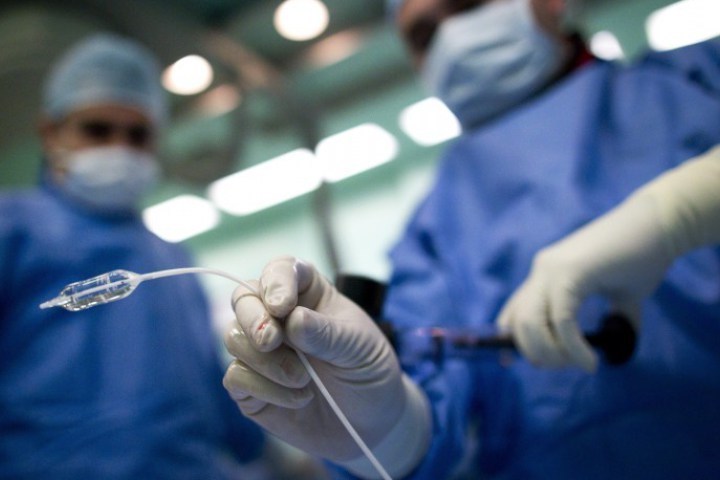Local healthcare leaders are warning the slowing decline of the fifth wave of COVID could slow the return of non-urgent surgeries in Waterloo region.
During Friday’s COVID-19 Community Update, the region’s chief medical officer of health, Dr. Hsiu-Li Wang, said wastewater signals showing the decline of Omicron have plateaued and remain high in comparison to other waves after peaking late last month in Cambridge, Kitchener and Waterloo.
Although Waterloo region is headed in the right direction, Wang warned "we’re not out of the woods yet," as she urged residents to continue to follow a cautious approach to resuming activities.
“Our healthcare system continues to be under great pressure due to the number of patients hospitalized and in ICU with COVID-19, and the need to ramp up delayed surgeries and procedures as soon as possible,” Wang said.
On a positive note, she said the seven-day moving average of per cent positivity is down to 9.8 per cent and outbreaks in high risk settings are continuing to slowly decline.
As of yesterday, there were 41 active outbreaks, including 20 in long-term care and retirement homes, 10 in other congregant settings, and 11 in hospitals.
The trend for hospitals is also moving in the right direction, with demand slowing down for acute care and ICU beds, said president of St. Mary’s General Hospital and regional lead of the hospital network Lee Fairclough.
The number of patients in hospital with COVID dropped from 97 to 82 over the last four days in the Waterloo-Wellington network.
But many patients are requiring ongoing hospital care long after they recover, she said.
“So, the number that are still in hospital receiving some level of care related to COVID is probably double to three times that number.”
The severity of illness is also worse among patients who are not vaccinated, Fairclough said.
Fairclough added she heard from the lead physician in St. Mary’s ICU that the degree of illness among unvaccinated patients is much worse than other waves, despite widespread reports about symptoms being mild.
“The intensity of care required is more than what we’ve seen, in fact, for other waves. And their length of stay is very long, particularly for those that are not vaccinated,” she said.
It highlights the importance of vaccination and third doses to reduce severe outcomes even for those that still end up in hospital, Fairclough added.
Also helping hospitals cope is the lessening impact COVID is having on hospital staff. The number of staff off sick due to COVID across the network dropped from 225 last Friday to 197 on Tuesday.
Despite the positive trends, Fairclough says the move to ramp up non-urgent surgeries will continue to be gradual even though the directive to pause patient intake was lifted last week.
All local hospitals will start with day procedures and increase intake as bed capacity is made available, she said.
And while, the directive allowing for the resumption of surgeries and procedures has been lifted, the directive to transport patients and support other regions remains in place.
Fairclough says that approach allows for a level of equity, particularly for areas of the province that may have been hit more heavily by the Omicron wave, or later in the wave.
She said it may require local hospitals to ask to transfer COVID patients to hospitals outside of the network to allow physicians to tackle the backlog of surgeries and procedures, which is estimated to be impacting around 11,000 patients in Waterloo region.
“By getting vaccinated and boosted, by staying at home when we’re sick, by wearing a mask and by avoiding crowded places and enclosed spaces, we’re helping not only ourselves and others avoid becoming seriously ill, we’re also helping to get delayed surgeries and procedures started again, and helping to keep our schools and businesses open,” Wang said.



